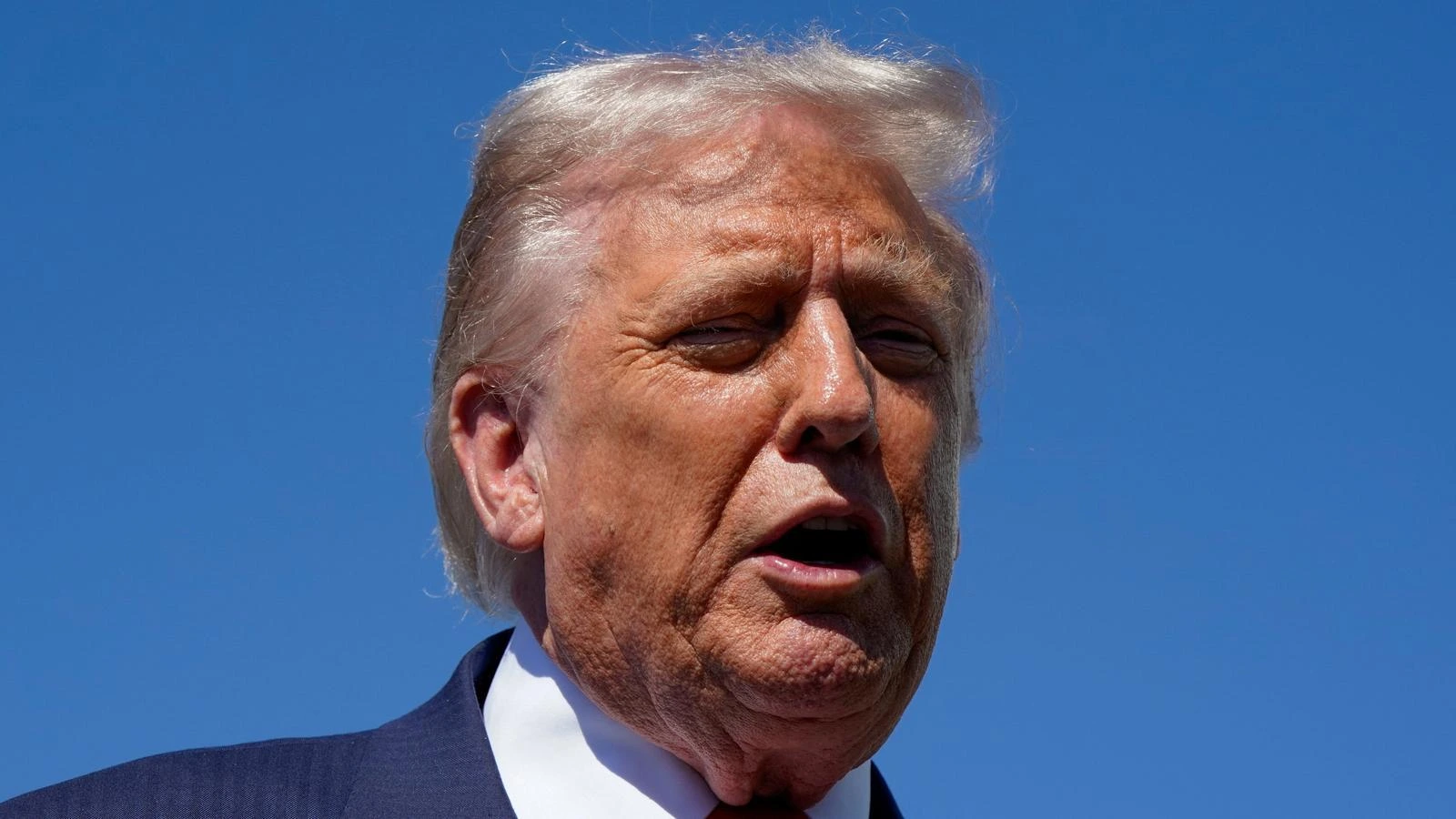WASHINGTON — Former US President Donald Trump said Saturday he has directed the Defense Department to “prepare for possible action” in Nigeria, citing alleged killings of Christians in the West African nation.
The statement, shared on Trump’s social media platform, marks one of his most forceful public threats of military involvement in Africa since leaving office, reigniting debate over America’s global role in religious freedom and counterterrorism efforts.
“If the Nigerian Government continues to allow the killing of Christians, the U.S.A. will immediately stop all aid and assistance to Nigeria, and may very well go into that now disgraced country, ‘gun a blazing,’ to completely wipe out the Islamic terrorists who are committing these horrible atrocities,” Trump wrote.
The post prompted a swift response from Secretary of Defense Pete Hegseth, who replied on X (formerly Twitter), “Yes sir,” adding that “the Department of War is preparing for action.”
Nigeria has battled Islamist insurgencies for more than a decade, including Boko Haram and its offshoot, Islamic State West Africa Province (ISWAP). The violence has killed tens of thousands and displaced millions, with both Christian and Muslim civilians suffering casualties.
Trump’s comments came one day after he designated Nigeria as a “country of particular concern,” a US State Department classification for nations accused of “particularly severe violations of religious freedom.” Other countries on the list include China, Cuba, and North Korea.
In response, Nigerian President Bola Ahmed Tinubu rejected the label, writing on X that “the characterization of Nigeria as religiously intolerant does not reflect our national reality.”
Tinubu emphasized that “religious freedom and tolerance have been a core tenet of our collective identity and shall always remain so.”
The Nigerian Ministry of Foreign Affairs released a statement asserting that the country “remains committed to tackling violent extremism” while respecting diversity and inclusion.
Political analysts and foreign policy experts warned that Trump’s remarks could strain US Nigeria relations, one of Washington’s most significant partnerships in sub-Saharan Africa.
“Any discussion of potential military action must be approached with caution,” said Dr. Helen Murray, a senior fellow at the Atlantic Policy Institute. “Nigeria is a sovereign nation and a key partner in regional stability. Such statements, if taken literally, could undermine years of security cooperation.”
John Adewale, a Lagos-based security analyst, said Trump’s comments could complicate Nigeria’s counterterrorism efforts.
The Nigerian military already works with US intelligence and training programs,” he said. “What we need is sustained support, not threats of invasion. The optics matter, especially in a country still healing from colonial era trauma.”
Experts also pointed out that Nigeria’s religious violence often stems from complex ethnic, economic, and political factors, not solely faith based persecution. “Labeling this as a Christian versus Muslim issue oversimplifies a multifaceted crisis,” said Murray.
According to the Armed Conflict Location & Event Data Project (ACLED), Nigeria recorded more than 5,000 deaths linked to Islamist militant attacks in 2024, with a majority occurring in the northeastern states of Borno, Yobe, and Adamawa.
The U.S. provides approximately $600 million annually in humanitarian and security aid to Nigeria, primarily for counterterrorism operations and food assistance.
Analysts noted that halting aid could disrupt both military and civilian relief efforts in areas already suffering from severe food insecurity.
Comparatively, Nigeria’s ongoing insurgency ranks among Africa’s deadliest conflicts, second only to the violence in Sudan.
Reactions within Nigeria were mixed. Some Christian leaders welcomed Trump’s statement as overdue international attention to their plight, while others urged restraint.
“We appreciate concern from global leaders, but any action must be rooted in partnership, not aggression,” said Rev. Emmanuel Uche, head of the Christian Association of Nigeria in Borno State. “Our people want peace, not war from another continent.”
In Kano, a predominantly Muslim city in northern Nigeria, locals expressed unease about the rhetoric. “We are all victims of terrorism,” said market vendor Amina Lawal. “Terrorists kill Muslims too. The US should help us build schools and hospitals, not send soldiers.”
Nigerian presidency spokesperson Daniel Bwala said Sunday that the government would “welcome US assistance in fighting Islamist insurgents as long as it recognizes our territorial integrity.”
Diplomatic observers predict that behind the scenes talks between US and Nigerian officials will likely seek to de-escalate the situation.
The Biden administration will probably clarify that any future cooperation will be coordinated through established diplomatic channels,” said Michael Carter, a former US defense attaché in Abuja.
Meanwhile, Trump’s comments may resonate with parts of his political base who have long viewed global religious freedom as a defining foreign policy priority. Whether his statement translates into policy action remains uncertain.
Trump’s declaration that the US military should “prepare for possible action” in Nigeria underscores ongoing tensions between rhetoric and diplomacy in US foreign policy.
While both nations share a mutual interest in defeating extremist violence, the language of confrontation risks overshadowing decades of strategic partnership.
As Nigeria continues its battle against terrorism, the path forward will depend not on unilateral threats but on cooperative efforts that address both security and humanitarian dimensions of the crisis.
